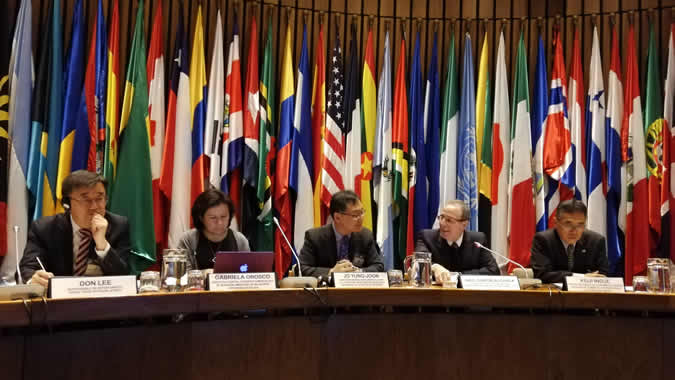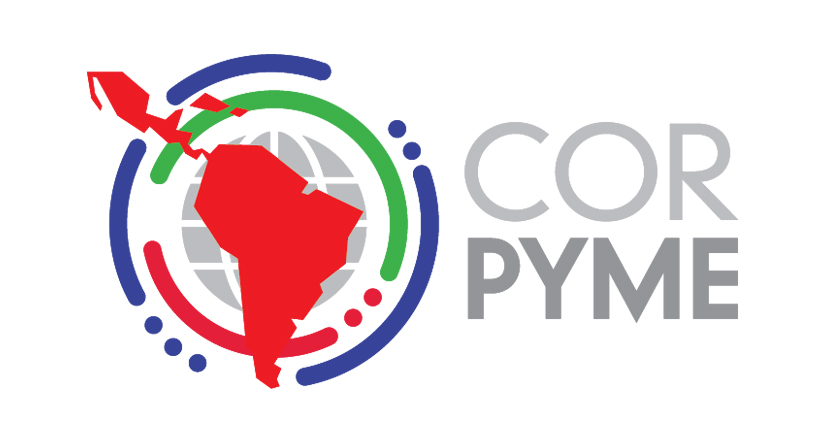Trade Single Windows Would Help the Region’s SMEs to Expand Internationally
Work area(s)
Authorities and experts analyzed the advantages of this instrument during a training workshop held at ECLAC.

Small and medium-sized enterprises (SMEs) represent more than 99% of all companies in Latin America and the Caribbean, but their participation in regional exports scarcely reaches 6%. For this reason, instruments such as Trade Single Windows (TSWs) can be an important aid for internationalizing these companies, authorities and experts gathered in Santiago, Chile indicated today.
At the III CORPYME Training Workshop: Trade Single Windows for the Internationalization of SMEs, organized by the Economic Commission for Latin America and the Caribbean (ECLAC) with the support of the Republic of Korea, participants learned about and compared the experiences and good practices of this Asian country – where SMEs also represent 95% of all companies, but they account for 20% of foreign trade – with the reality of the region, exploring options for international cooperation to adapt TSWs to the needs of SMEs.
The event was inaugurated by Raúl García-Buchaca, ECLAC’s Deputy Executive Secretary for Management and Program Analysis; Jo Yung-Joon, Director General for Latin America and the Caribbean at the Ministry of Foreign Affairs of the Republic of Korea, the country that sponsors the CORPYME project implemented by ECLAC; and Gabriela Orosco, Director General of Trade and Investment Agreements at the Ministry of Foreign Affairs of Bolivia, in its capacity as President Pro Tempore of the Community of Latin American and Caribbean States (CELAC).
CORPYME is an action plan to strengthen the capacities of countries to promote the internationalization of SMEs in the countries of CELAC, through more intensive use of information and communication technologies (ICTs) and export innovation.
“Because of their high levels of participation in the economy and in employment, SMEs are key for achieving the Sustainable Development Goals (SDGs) of the 2030 Agenda. In this context, the internationalization of SMEs is a catalyst for improving the performance of these companies. It has been proven that the SMEs that export have a greater degree of formalization, they are more productive and they offer better jobs with higher salaries,” Raúl García-Buchaca said upon making his remarks.
The senior United Nations official added that trade facilitation measures in general, and the trade single windows in particular, offer a solution to some of the obstacles that SMEs face when they seek to export, and they are critical for greater use of paperless trade and for incentivizing more export activity by these companies.
García-Buchaca also stressed that work is needed for companies and consumers in the region to insert themselves in cross-border electronic trade in more and better ways. To that end, the region must further the regional digital market, promote the digitalization and simplification of trade financing, modernize customs agencies and postal services – this is where the TSWs would play a critical role – and reduce the costs of cross-border online payments.
ECLAC’s Deputy Executive Secretary also highlighted the strong economic and cooperation ties between Latin America and the Caribbean and the Republic of Korea. For example, bilateral trade in goods between both sides quintupled between 2000 and 2018, although it is still necessary to improve export diversification. In addition, the region was the destination for 13% of Korean Foreign Direct Investments (FDI) between 2010 and 2017.
Meanwhile, Jo Yung-Joon stated that one of Korea’s priorities lies in its trading partners’ quest for prosperity. For that reason, he said he hopes that sharing the progress made in his country in terms of skills and best practices regarding the internationalization of SMEs will be of use to Latin America and the Caribbean.
“SMEs play a key role in achieving economic and social development; they have great potential to make our economies grow more…The internationalization of SMEs is in the mutual interest of Korea and the countries of Latin America. The government of Korea and its people fully understand the importance of SMEs for sustainable economic growth,” the Korean diplomat indicated.
In her remarks, Gabriela Orosco emphasized the relevance of CELAC having achieved unity within diversity. She recalled that this bloc is composed of 33 countries, with 622 million inhabitants, and covering 20 million square kilometers of territory, with abundant natural resources.
“As was said previously, SMEs represent 99% of the productive apparatus and two-thirds of employment in our region. However, their participation in regional exports is just 6%, which reflects their low degree of internationalization and productivity. That is why it is important for the region’s SMEs to use tools like TSWs and ICTs to simplify and streamline foreign trade procedures, get familiar with the applicable requirements and regulations, and reduce the time and costs associated with exporting,” she indicated.
More information, including the event program, is available at this link.

